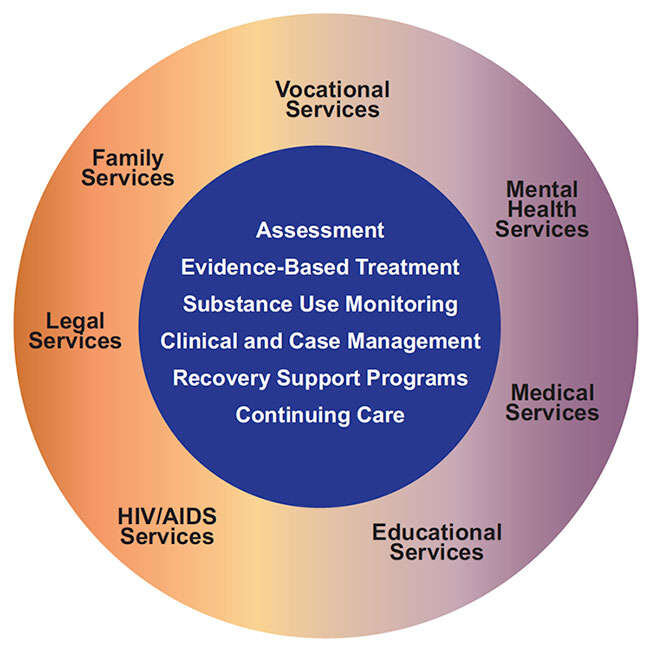A Comprehensive Overview to Substance Abuse Rehab
Substance Abuse rehabilitation, often described as rehabilitation, is a structured procedure developed to aid individuals conquer dependancy on drugs, alcohol, or various other addicting materials. It is not merely regarding detoxification-- it is a journey of psychological, emotional, and physical improvement. Rehabilitation centers supply secure environments where people can challenge the source of their addiction, address mental triggers, and find out coping systems to receive long-lasting soberness. This process is led by qualified specialists, consisting of therapists, clinical physicians, and counselors that comprehend the complex nature of dependency as both a physiological and behavior condition.
Understanding the Core important Abuse Recovery
At its core, rehab has to do with reconstructing an individual's life. Addiction often leaves deep scars-- stretched relationships, economic distress, health issue, and psychological instability. Through thorough rehab programs, people are provided the devices to repair these aspects slowly. Rehabilitation isn't nearly staying away from substances; it's about reclaiming control and finding one's sense of self-respect. The programs highlight structure, consistency, and personal accountability, which are key to long-term recovery success. Every small landmark throughout rehabilitation serves as a foundation for lasting sobriety.
Moreover, Substance Abuse rehabilitation is not a one-size-fits-all approach. It identifies that everyone's addiction story is special-- what resulted in Substance Abuse misuse, just how it proceeded, and exactly how recovery can be continual differ commonly. For that reason, treatment facilities personalize care plans based upon private assessments, guaranteeing that every patient obtains assistance that straightens with their emotional state, addiction history, and life circumstances. This individualized approach significantly improves recuperation end results and helps prevent relapse as soon as people reintegrate into everyday life.
The Benefits of Inpatient Rehabilitation Programs
Inpatient rehabilitation, additionally understood as property therapy, provides one of the most effective approaches for those fighting severe Substance Abuse addiction. Among its primary advantages is the distraction-free and organized environment. When an individual gets in an inpatient facility, they are momentarily removed from outside triggers-- such as buddies that make use of substances, difficult workplaces, or household problems-- that may prevent their recuperation. This isolation from unfavorable influences enables people to focus totally on healing. Living within a encouraging and monitored setup creates the security required to damage old behaviors and develop much healthier patterns of actions.
An additional significant advantage of inpatient rehab is the 24/7 professional guidance readily available per individual. Withdrawal signs from drugs or alcohol can be unpredictable and, sometimes, deadly. Inpatient facilities have medical teams that provide round-the-clock treatment, making certain individuals are comfortable and risk-free throughout detoxification. Beyond physical wellness, constant supervision also supplies psychological peace of mind-- patients recognize that assistance is available at any moment, which minimizes stress and anxiety and builds rely on the healing process. This instant access to emotional and clinical support significantly boosts the success rate contrasted to outpatient look after extreme addictions.
Last but not least, inpatient rehab programs cultivate a strong feeling of community and liability. Individuals communicate with others who share comparable battles, join team treatment, and take part in activities that encourage synergy and compassion. This atmosphere supports good understanding and reduces sensations of isolation often related to addiction. By getting in touch with peers and picking up from their experiences, people develop social bonds that remain to support them also after leaving the facility. This feeling of belonging, incorporated with constant specialist assistance, makes inpatient rehabilitation a very effective structure for lasting healing.
Inpatient Rehabilitation Services Supplied
Inpatient rehab facilities offer a diverse series of solutions made to treat the body, spirit, and mind all at once. The initial stage usually includes clinical detoxing, a procedure that securely gets rid of materials from the body while managing withdrawal symptoms. Detox is supervised by doctor who may administer medication to ease discomfort and avoid problems. When detox is complete, clients shift to structured daily programs that include wellness, counseling, and therapy activities. This integrated strategy ensures that people not just conquer physical dependence yet additionally address mental and emotional aspects of addiction.
Healing services go to the heart of inpatient rehabilitation. Facilities offer person therapy sessions, where patients function one-on-one with qualified specialists to uncover the underlying reasons for their addiction-- such as injury, mental health conditions, or unresolved psychological discomfort. Cognitive-behavioral therapy (CBT), dialectical behavior treatment (DBT), and motivational talking to are among one of the most common evidence-based approaches used. In enhancement, group treatment sessions provide an encouraging space for individuals to share experiences, gain perspective, and establish social skills. Family members therapy is likewise frequently included, aiding to rebuild depend on and boost communication in between patients and their loved ones.
Past traditional therapy, several inpatient programs include recreational and alternative services to promote general health - dual diagnosis rehab NJ. Yoga, reflection, art treatment, and physical fitness programs help in reducing stress and show mindfulness. Nutritional therapy makes certain that clients reconstruct physical health and wellness, as Substance Abuse usually depletes the body's important nutrients. Some rehab focuses also supply vocational training and educational workshops to assist individuals plan for reintegration right into culture. These varied solutions are designed check this to heal the whole person-- not just deal with dependency signs and symptoms-- by fostering strength, purpose, and balance
Why You Need To Take Into Consideration Outpatient Programs
While inpatient rehab uses a intensive and immersive technique, outpatient programs give a choice that allows flexibility for individuals that can not devote to permanent household therapy. Outpatient rehabilitation makes it possible for individuals to get structured therapy and medical support while preserving their everyday obligations-- such as institution, household, or work care. For several individuals with mild to modest addiction, outpatient therapy uses the ideal equilibrium between recovery and daily life. It allows patients to exercise the coping skills they find out in real-world atmospheres, reinforcing their durability in the face of day-to-day challenges.
An additional reason to consider outpatient programs is their cost-effectiveness. Inpatient care can be expensive because of accommodation, dishes, and 24-hour supervision, which may not be financially feasible for everybody. Outpatient programs, nonetheless, normally cost much less due to the fact that they do not need household remains. Several facilities use sliding-scale payment choices or approve insurance coverage to make treatment obtainable. For those who have actually currently completed inpatient rehab, transitioning right into an outpatient program functions as a beneficial continuum of treatment, aiding maintain responsibility and prevent relapse with recurring assistance.
Additionally, outpatient programs use a high level of customization. Clients can select in between partial a hospital stay programs (PHP), intensive outpatient programs (IOP), or conventional outpatient treatment, relying on their level of demand. Each option offers varying levels of framework and time dedication. IOPs normally entail numerous treatment sessions per week, while typical outpatient treatment could consist of my blog once a week therapy brows through. This flexibility ensures that patients can receive professional help tailored to their recovery phase, making outpatient programs a sensible and encouraging selection for lasting healing maintenance.

Exploring Other Therapy Alternatives basically Abuse Recovery
Beyond inpatient and outpatient rehabilitation, there are several other treatment choices readily available for individuals seeking recuperation from Substance Abuse addiction (substance abuse treatment Morris County). Medication-assisted treatment (MAT) is one such method, integrating recommended medicines with behavior modification to handle withdrawal signs and minimize food cravings. Drugs like buprenorphine, naltrexone, or methadone are usually made use of in opioid dependency therapy, while acamprosate or disulfiram may support alcohol recovery. Floor covering aids maintain brain chemistry, enabling individuals to focus on treatment and way of living modifications without the overwhelming discomfort of withdrawal

Alternate treatments are also coming to be increasingly prominent in Substance Abuse Abuse therapy. These may include holistic methods like acupuncture, horse therapy, adventure-based counseling, and spiritual recovery programs. While these techniques may not replace traditional treatment, they can enhance it by boosting emotional policy, self-awareness, and confidence. The objective of discovering various treatment options is to develop a healing strategy that resonates with each individual's worths, ideas, and way of living. A tailored mix of therapies typically generates the most lasting results, equipping people to live a satisfying, substance-free life.
The Path to Long-Term Soberness and Healing
Finishing rehab-- whether inpatient or outpatient-- is only the beginning of a lifelong recuperation journey. Aftercare programs play an essential role in keeping sobriety and stopping relapse. These programs might consist of continuous therapy, support system like Narcotics Anonymous or Alcoholics Anonymous, and sober living arrangements that offer continued framework. Consistency and area are important; individuals that stay connected to recuperation networks are more probable to sustain lasting progress. Rehab teaches the needed coping abilities, however aftercare makes certain that those abilities are applied and enhanced in real-life scenarios.
Long-term recovery likewise depends upon way of living adjustments that support physical and psychological health. Developing healthy practices-- such as routine exercise, well balanced nourishment, and mindfulness methods-- aids recover equilibrium to the mind and body. Engaging in purposeful activities like volunteering, seeking hobbies, or reconnecting with liked ones can fill the click now psychological gap left by Substance Abuse usage. Developing a positive frame of mind and concentrating on future objectives give recovering people a renewed sense of identity and direction. Soberness is not regarding starvation; it's concerning recovering life's richness and chances.

Via comprehensive rehab programs, individuals are provided the tools to repair these aspects gradually. Inpatient rehabilitation programs cultivate a solid sense of neighborhood and accountability. While inpatient rehab offers a extensive and immersive technique, outpatient programs supply an option that permits adaptability for people that can not dedicate to full-time residential therapy. Outpatient rehabilitation makes it possible for people to obtain structured therapy and medical assistance while keeping their everyday obligations-- such as school, job, or family members care. Past outpatient and inpatient rehab, there are several other therapy choices readily available for individuals seeking healing from Substance Abuse addiction.